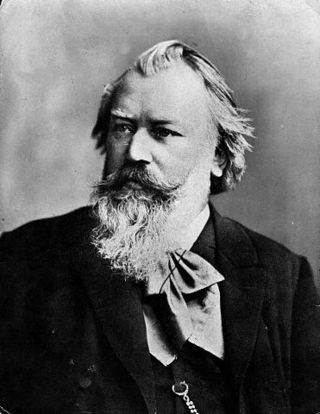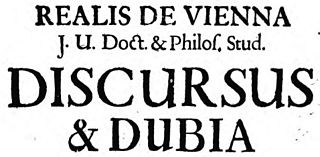External links
- Hans-Joachim Wagner at fussballdaten.de (in German)
| Personal information | |||
|---|---|---|---|
| Date of birth | January 31, 1955 | ||
| Position(s) | Defender | ||
| Senior career* | |||
| Years | Team | Apps | (Gls) |
| 1974–1983 | Borussia Dortmund | 221 | (9) |
| 1983–1984 | Rot-Weiss Essen | 9 | (1) |
| *Club domestic league appearances and goals, correct as of 16:31, 28 February 2009 (UTC) | |||
Hans-Joachim Wagner (born January 31, 1955) is a retired German football player. He spent 7 seasons in the Bundesliga with Borussia Dortmund. The best league finish he achieved was 6th place.

Johannes Brahms was a German composer, pianist, and conductor of the mid-Romantic period. Born in Hamburg into a Lutheran family, he spent much of his professional life in Vienna. He is sometimes grouped with Johann Sebastian Bach and Ludwig van Beethoven as one of the "Three Bs" of music, a comment originally made by the nineteenth-century conductor Hans von Bülow.

Die Meistersinger von Nürnberg, WWV 96, is a music drama, or opera, in three acts, by Richard Wagner. It is the longest opera commonly performed, taking nearly four and a half hours, not counting two breaks between acts, and is traditionally not cut. With Hans von Bülow conducting, it was first performed on 21 June 1868 at the National Theater in Munich, today home of Bavarian State Opera.

Joseph Joachim was a Hungarian violinist, conductor, composer and teacher who made an international career, based in Hanover and Berlin. A close collaborator of Johannes Brahms, he is widely regarded as one of the most significant violinists of the 19th century.

The Bayreuth Festival is a music festival held annually in Bayreuth, Germany, at which performances of operas by the 19th-century German composer Richard Wagner are presented. Wagner himself conceived and promoted the idea of a special festival to showcase his own works, in particular his monumental cycle Der Ring des Nibelungen and Parsifal.

Dietrich Fischer-Dieskau was a German lyric baritone and conductor of classical music, one of the most famous Lieder performers of the post-war period, best known as a singer of Franz Schubert's Lieder, particularly "Winterreise" of which his recordings with accompanists Gerald Moore and Jörg Demus are still critically acclaimed half a century after their release.
The "War of the Romantics" is a term used by some music historians to describe the schism among prominent musicians in the second half of the 19th century. Musical structure, the limits of chromatic harmony, and program music versus absolute music were the principal areas of contention. The opposing parties crystallized during the 1850s. The most prominent members of the conservative circle were Johannes Brahms, Joseph Joachim, Clara Schumann, and the Leipzig Conservatoire, which had been founded by Felix Mendelssohn. Their opponents, the radical progressives mainly from Weimar, were represented by Franz Liszt and the members of the so-called New German School, and by Richard Wagner. The controversy was German and Central European in origin; musicians from France, Italy, and Russia were only marginally involved. Composers from both sides looked back on Beethoven as their spiritual and artistic hero; the conservatives seeing him as an unsurpassable peak, the progressives as a new beginning in music.

Villa Massimo, short for Deutsche Akademie Rom Villa Massimo, is a German cultural institution in Rome, established in 1910 and located in the Villa Massimo.

Germany was the host nation and top medal recipient at the 1936 Summer Olympics in Berlin. 433 competitors, 389 men and 44 women, took part in 143 events in 22 sports.
Hans-Joachim Hespos was a German composer of avant-garde music. He was trained as a teacher and worked until 1984. Self-taught as a composer, he then worked freelance and created more than 200 works in many genres. His unconventional compositions were commissioned and performed internationally. They are archived at the Bavarian State Library.

The New German School is a term introduced in 1859 by Franz Brendel, editor of the Neue Zeitschrift für Musik, to describe certain trends in German music. Although the term has frequently been used in essays and books about music history of the 19th and early 20th centuries, a clear definition is complex.
"Music of the Future" is the title of an essay by Richard Wagner, first published in French translation in 1860 as "La musique de l'avenir" and published in the original German in 1861. It was intended to introduce the librettos of Wagner's operas to a French audience at the time when he was hoping to launch in Paris a production of Tannhäuser, and sets out a number of his desiderata for true opera, including the need for 'endless melody'. Wagner deliberately put the title in quotation marks to distance himself from the term; Zukunftsmusik had already been adopted, both by Wagner's enemies, in the 1850s, often as a deliberate misunderstanding of the ideas set out in Wagner's 1849 essay, The Artwork of the Future, and by his supporters, notably Franz Liszt. Wagner's essay seeks to explain why the term is inadequate, or inappropriate, for his approach.

Alexander Sascha Ritter was a German composer and violinist. He wrote two operas - Der faule Hans and Wem die Krone?, a few songs, a symphonic waltz and two symphonic fantasias. Ritter died in Munich.
Manfred Trojahn is a German composer, flautist, conductor and writer.

Gabriel Wagner was a radical German philosopher and materialist who wrote under the nom-de-plume Realis de Vienna. A follower of Spinoza and acquaintance of Leibniz, Wagner did not believe that the universe or bible were divine creations, and sought to extricate philosophy and science from the influence of theology. Wagner also held radical political views critical of the nobility and monarchy. After failing to establish lasting careers in cities throughout German-speaking Europe, Wagner died in or shortly after 1717.
René Tinner is a Swiss recording engineer and producer, who has produced over 200 studio records and numerous live performances.

German submarine U-1166 was a Type VIIC/41 U-boat of Nazi Germany's Kriegsmarine during World War II.

Anonymous Letters is a 1949 German drama film directed by Arthur Maria Rabenalt, and starring Käthe Haack, Tilly Lauenstein, and O.E. Hasse. It was shot at the Tempelhof Studios in West Berlin and on location in the city at the time of the Berlin Blockade. The film's sets were designed by the art director Willi Herrmann.
Laurenz Lütteken is a German musicologist. Since 2001, he has been Ordinarius for musicology at the University of Zürich. Since 2013, he is General editor of MGG Online.

Hans-Joachim Fuchtel is a German lawyer and politician of the Christian Democratic Union (CDU) who served as a member of the Bundestag from the state of Baden-Württemberg from 1987 until 2021. From 2018 to 2021 he also served as Parliamentary State Secretary for Food and Agriculture in the government of Chancellor Angela Merkel.
Lutz Wagner is a former German football referee. He now serves as a member of the Amateurs Referee Committee in the German Football Association.